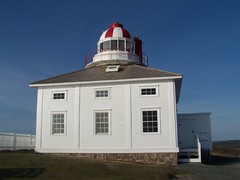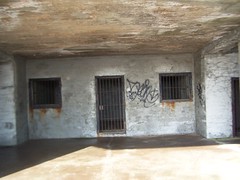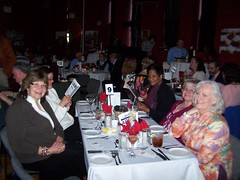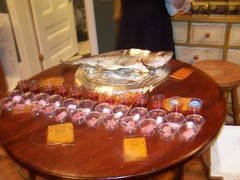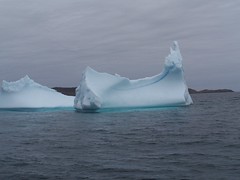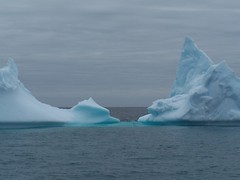Held at Marine Institute – Memorial University, St. Johns, Newfoundland Canada. May 14-16, 2014. Hosted by Catherine Lawton.
Abstracts
Pulling the Pieces Together: Coastal Community Management Data Dave Baca, Texas A&M University at Galveston, Galveston, TX, USA
The Galveston Island Park Board of Trustees, a governmental entity created in 1962 by the Texas Legislature, is responsible for preserving and promoting the Island’s natural resources, including its beaches. The Park Board produces data and documents — studies, reports, policy advisories, and other information — which may not necessarily fall under the purview of government document depository mandates, but should still be openly accessible to citizens. Texas A&M University at Galveston, as an institute dedicated to higher education and scholarship in the marine sciences, marine engineering, and maritime professions, is a natural home for this kind of scientific and economic information. In January 2014, the Jack K. Williams Library at Texas A&M – Galveston and the Galveston Island Park Board of Trustees formed a partnership to create a repository for preservation and open sharing of these documents. This brief presentation will outline our progress to date.
Writing on the Water: Integrating Writing Into the Library Dave Baca, Texas A&M University at Galveston, Galveston, TX, USA
Writing Centers at academic institutions are tasked with improving the quality of student writing across all disciplines using traditional writing theory and modern technology. The dilemma embedded in these traditional versus modern partnerships is how to integrate library services and new technologies so they serve the institutional interests of high quality academic writing and how to assess the technology’s effectiveness in learning outcomes. Using collaborative assessment methods including metrics from peer-to-peer counseling sessions, this presentation recounts the history of the Writing Lab at Texas A&M University at Galveston, discusses the use of peer-to-peer counseling, delves into the technology used for appointments and feedback and discusses the future.
Poster Session: Sailing Into New Waters: Altmetrics Offer New Ways Of Measuring Research Output Dorothy Barr, Harvard University, Ernst Mayr Library, Cambridge, MA, USA
There are new ways of viewing the overall impact of research that consider metrics such as datasets, blogs and posts on social media. “Altmetrics” look beyond traditional methods like citation counts, impact factors and h-indices to assess the output of researchers. Librarians can help researchers and administrators use these new methods effectively to more accurately measure research activity and make better hiring and tenure decisions. We can also assist researchers in tracking the impacts of their work in today’s changing and interdisciplinary world.
Curriculum Framework for Data Literacy at the University of Miami Angela Clark-Hughes, University of Miami, Miami, FL, USA
With mandates from agencies like the National Science Foundation (NSF) and National Institute of Health (NIH) requiring data management plans as part of funding requests, there has been an increasing opportunity for libraries to offer assistance in data management. In 2009, the University of Miami Libraries initiated an E-Science working group to better understand the lifecycle of research data, from creation of raw data, to processing and analysis of data, to preservation of data with discoverability and accessibility for potential re-use. As an academic library we have traditionally provided access to published data in handbooks, journals and specialized databases. However, our researchers’ unpublished data sets or raw data presented us with several ongoing challenges and questions: what constitutes data, variances in data collection, data format issues, space concerns for data storage, access requirements for electronic and physical data, metadata and description needs for data retrieval, proprietary software needs, etc. A path forward was clearly needed.
After attending the 2013 Data Information Literacy (DIL) Symposium at Perdue University, a new approach for developing a viable data management service program at the University of Miami Libraries emerged. Through supported data literacy programming, librarians can offer graduate students and researchers a framework for best practices and protocols for managing their data from the outset of their research projects. Our first steps will be to “train the trainers.” Using a series of Creative Commons course models developed by DataOne, the Lamar Soutter Library at the
University of Massachusetts Medical School and the George C. Gordon Library at Worcester Polytechnic Institute, we have begun developing our framework for data literacy. I will discuss the modules we used and modified, and their application at the Rosenstiel School of Marine and Atmospheric Science Library, University of Miami.
Innovations & Elasmobranchs: Consilience in the Marine Laboratory Archives & Library Alyson Gamble, Mote Marine Laboratory, Arthur Vining Davis Library & Archives, Sarasota, FL, USA.
At the Arthur V. Davis Library and Archives at the Mote Marine Laboratory, digitizing the historical papers of the Mote’s Center for Shark Research offers an opportunity for rocking the boat of archives, libraries, and public access to special collections. The Collected Papers of E. Clark (the shark lady), P.W. Gilbert, H.D. Baldridge, and S. Springer contain early shark studies in Florida from the 1940-70s and highlight researchers’ innovative techniques and unique discoveries. These scientists developed new ways of conducting marine experiments, disrupted the idea of women’s roles in science, and provided the world with a better appreciation of sharks and other misunderstood elasmobranchs. In a similar sense, today’s digital repositories of special collections have provided consilience between information professionals and scientific researchers, disturbed the roles of archivist and librarian, and expanded popular interest by making previously inaccessible materials more widely available.
Though many people have a vision of purely online information landscape, not every archival material can be digitized. However, through electronic search tools linked to a digital repository, a record of these fragile pieces can be made available to the wider community. Increased visibility of rare and important holdings lends people outside of the traditional target population a new sense of the value of libraries. Novel opportunities in digital repositories are fueled by the same enterprising spirit as that which drove the scientists whose materials comprise the Center for Shark Research papers. Digitizing these manuscripts gives us at the Arthur V. Davis Library and Archives a chance to further Mote’s pioneering research and the public a way to learn more about another often misread entity: the marine science collection.
Breaking the Surface: New and innovative ways to increase library engagement In an academic research library Jaime Goldman, NOVA Southeastern University, Dania Beach, FL, USA
Working in a special academic research library with a diverse audience of researchers, staff, students, and faculty can present a challenge when it comes to determining how best to engage and motivate our library users. When our new Center of Excellence for Coral Reef Ecosystems Research opened in September 2012, our Oceanography Library was reborn in a new, high-tech facility. But, our library use statistics remained unchanged. We decided it was time to incorporate disruptive ideas into the culture of our organization! We began to experiment with new and innovative ways to attract and engage our target audience and increase the usage of our facility and resources, with particular focus on mobile environments and technologies. Hear how through the use of QR Codes, FaceBook, LibGuides, online contests, food, and fun library gimmicks we began to better engage our patrons and increase the use of our online resources. Also learn about our newest endeavor to incorporate online badges as a new and non-traditional reward for learning and participation in the library and resources. The last part of this presentation will include an introduction to online badges, as well as a tutorial on how to create them and incorporate them into your library instruction. Participants will even earn an online badge for attending the SAIL conference!
Poster Session: Rocking the Boat by Removing the Anchors: How One Library Uses Social Media to Take Their Scientific Mission Community-wide Anne Moser and Erin Anthony, U Wisconsin-Madison, Wisconsin’s Water Library, Madison, WI, USA.
Libraries often use social media as a promotional tool to publicize library events and collections, to communicate administrative details such as business hours and location, and to promote new print and online holdings in the library. Wisconsin’s Water Library at UW-Madison has taken a “disruptive” approach to their use of social media by using this low-cost, flexible tool to reach a much broader audience while focusing on communicating new research and trends in aquatic and marine sciences. In sum, the librarians use social media to give a voice to the library’s subject focus with the aim of engaging a wider range of potential library users.
Using a suite of tools including Facebook, Twitter, Pinterest and Blogger, the library has been able to reach an audience beyond what is typical for an academic library at a large research institute. Among the library’s followers are journalists, nonprofit groups, environmentalists, public and academic libraries, fishermen and government agencies as well as students and faculty members. The Library aims to be innovative in the generation of content as well. Instead of simply sharing, retweeting and reposting, the librarians summarize research articles, write about library outreach and engage users with fun and science-based conversations. Librarians use science content to bridge current events and their collection to contribute to larger conversations. This disruptive social media sparks conversation dramatically outside the promotional realm.
This poster will illustrate some examples of successful social media campaigns that have sparked conversation and excitement about the Great Lakes and Wisconsin’s waters. It will also highlight some failed attempts by the library that have provided the library with some very useful feedback as well.
Change and Disruption: The Science Paradigm, Woods Hole, and the Role of Libraries Lisa Raymond, MBL WHOI, Woods Hole, MA, USA.
Change can be an opportunity, but for many, change is a difficult disruption. How can librarians convey optimism and positive thinking to staff and patrons as budgets and service models are changing? The Fourth Paradigm: Data-Intensive Scientific Discovery, describes the shift in scientific method from observations to data intensive discovery. We see parallel changes in libraries, as well as changes on the local level. I will discuss these changes, the impact change can have on staff and patrons, and how we can maintain optimism and professional growth in the process.
Expanding Research Impact Assessment Jennifer Walton, MBLWHOI, Marine Biological Laboratory, Woods Hole, MA, USA.
As funding for research slows, researchers, institutions, and funding agencies are implementing new ways of tracking research impact.
Ways of measuring research impact assessment are expanding. Citation analysis is no longer the only tool; however libraries are still involved in the assessment. The Becker Medical Library Model for Assessment of Research Impact was developed to show the wider impact of medical research done at Washington University in St. Louis.
What is considered a research product is also expanding to incorporate data. Data journals are expanding; however data citation is still evolving. How will data be findable? What standards will be used? How can data be included in traditional and expanded research assessment.
Demand Driven Acquisition Louise White, Memorial University, St. John’s, Newfoundland, Canada
Memorial University Libraries began a pilot demand driven acquisition (DDA) program in July 2014. Implementing DDA was a signature project of the Libraries strategic plan designed to meet the goal of providing immediate access to an expanded selection of scholarly monographs. Consolidated via YBP, the program is built on the Libraries slip profiles and includes short term loans and mediated purchasing. Metrics are collected and analyzed to establish the value of the program to Memorial University.
See the full presentation here. (pdf)
Photos from the conference:


